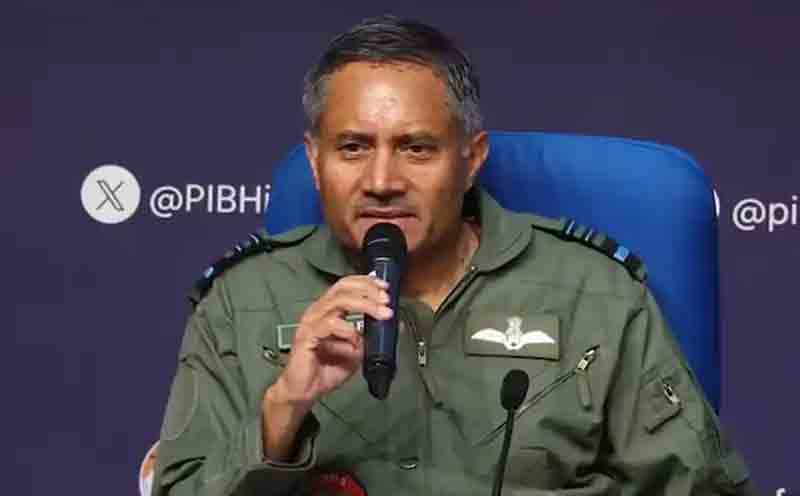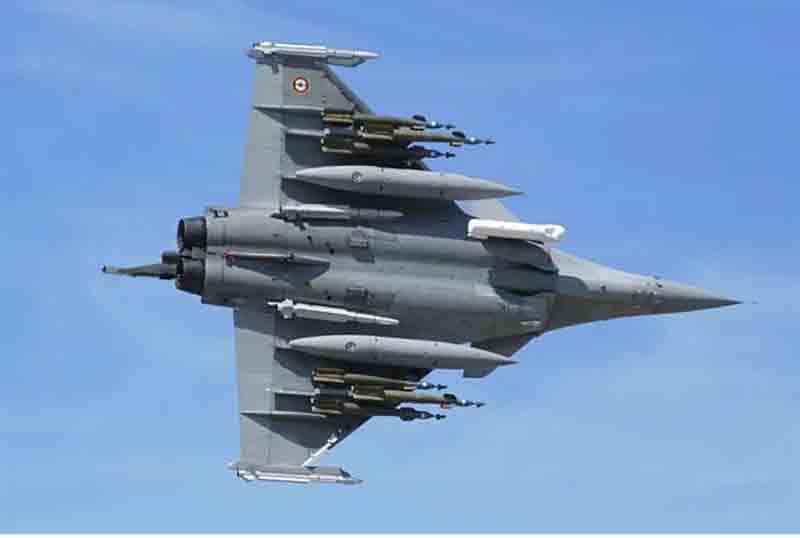India has been actively promoting the targeting of purported nuclear weapons storage sites in the Kirana Hills of Pakistan‘s Sargodha district. Meanwhile, Indian extremists have been disseminating false information on social media, portraying it as a significant victory for India. These social media posts have circulated fabricated images of the Kirana Hills, alleging that the nuclear storage facilities there were damaged and that radiation was being released.
The propagandists have also asserted that Pakistan was compelled to declare a ceasefire following the damage to its nuclear assets in Kirana and sought assistance from the United States. However, as this propaganda has backfired, the Indian Air Force has had to categorically refute these claims. The impetus for curtailing the propaganda on India’s part stems from the perception that such assertions render India an irresponsible nation, jeopardizing global peace and security.
During a briefing amidst the conflict, an Indian Air Force spokesperson addressed inquiries regarding these claims, stating that no such attack had occurred, yet he also remarked that they were unaware of any nuclear weapons storage in the Kirana Hills, thanking the reporter for the information.
“We did not hit nuclear facility at Kirana Hills.”
And “Their reactions!”😎🔥🔥
Jai Hind 🇮🇳 pic.twitter.com/vPhIOrk68M
— Jyoti Dhillon (@singh_jyoti25) May 14, 2025
This statement further fueled the propaganda, leading social media users to interpret it as validation. Subsequently, the Indian Army and government opted for silence, viewing the propaganda as strategically advantageous, but the backlash on the international stage was severe, resulting in India’s humiliation.
India disseminated this assertion extensively, with various media outlets reporting on it. An Indian journalist contributed to the Eurasian Times, alleging that India intentionally struck the installation with a BrahMos missile, resulting in a successful attack. The article stated that a highly significant site had been removed from existence.
The International Atomic Energy Agency (IAEA), responsible for nuclear oversight, has refuted this misinformation. On Wednesday, the IAEA stated that there was no radiation leak or release from any nuclear facility in Pakistan, nor was there any radioactive event as suggested on social media.
There. pic.twitter.com/uiajlccXl0
— FJ (@Natsecjeff) May 15, 2025
Fredrik Dahl from the IAEA press office commented: ‘We are aware of the reports. According to the information available to the IAEA, there has been no radiation leak or release from any nuclear facility in Pakistan.’
The IAEA’s Incident and Emergency Centre, created in 2005, acts as the central point for coordinating international support in emergency preparedness and response to radiation-related incidents and emergencies, irrespective of their cause or severity.
Discover more from Defence Talks | Defense News Hub, Military Updates, Security Insights
Subscribe to get the latest posts sent to your email.





